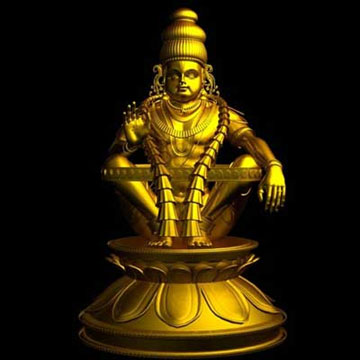 The
The petition by the Young Lawyers’ Association asking the Supreme Court to lift restrictions on women from entering the Sabarimala temple in Kerala could open a can of worms. Sabarimala isn’t the only place of worship that has restrictions on women entering.
Mosques, temples, and other places of worship fully or partially ban women, non-adherents, foreigners, the improperly dressed, the list goes on. The court can be expected to do its duty by the Constitution, but will this open a door to a flood of similar litigation?
I have been going to the temple at Sabarimala for over 25 years and one question that people ask me often is “Who placed the restrictions on women entering the temple?” And the short answer is, Ayappa himself! According to legend, Ayappa is celibate so that he can focus on answering the prayers of his devotees. And he will remain celibate till the day kanni swamis (first-time devotees) stop coming to Sabarimala.
Ayappa is a historical figure. He was the prince of Panthalam, a small kingdom located in the Patthanamthitta district in Kerala. The palace that he grew up in still exists and you can visit it. One of Ayappa’s most loyal subjects was Vavar (Malayalam for Babar), an Arab commander, whom he defeated in battle.
Vavar is today installed, not as an idol but in spirit, at a mosque in Erumeli. He protects pilgrims who make the difficult 40-km trek through the jungles to the main temple at the top of the hill. Muslims too make the journey to the mosque at Erumeli and the Vavar shrine, which faces the temple on the hill top.
Sabarimala is one of the few temples in India that welcomes men and women of every caste. Devotees dress uniformly in black. The colour signifies a renunciation of all worldly pleasures, but it also means that everyone is equal before Ayappa, irrespective of caste.
In fact, the hierarchy among devotees is based on how many times they have made the pilgrimage and not on caste. Pilgrims live an ascetic life for 40 days before undertaking the journey to Sabarimala. During that time , they pray in groups. A Dalit can lead the prayers and a Brahmin in the group must still touch his feet. You won't see this anywhere else.
Apart from the historical Ayappa, there is a puranic legend associated with him, which says he is the son of Vishnu and Shiva. This is believed to be a union of forces, not the result of an actual physical relationship. It means he has traits of both gods and that’s what makes him a particularly potent deity in the eyes of his devotees.
Any way you look at it, Sabarimala is the epitome of inclusiveness. It’s one of the few, if not only temple, that openly welcomes people of all faiths and castes. So, why restrict women?
For the answer, we need to go back to the legend. According to the puranas, Ayappa was born to destroy a female demon who, thanks to a boon, could only be vanquished by a child born of both Shiva and Vishnu. When Ayappa fulfils his destiny by killing her, a beautiful woman emerges from the body. She had been cursed to live as a demon, but her killing reversed the curse. Now free, she asks Ayappa to marry her. He refuses, explaining to her that his mission is to go to Sabarimala where he would answer the prayers of his devotees.
However, he assures her, he will marry her when kanni-swamis stop coming to Sabarimala. She now sits and waits for him at a neighbouring shrine near the main temple and is worshipped as Malikapurathamma. With hundreds of thousands of new devotees pouring in every year, hers will be a long wait.
And that is why women do not go to Sabarimala. It is partly out of empathy for Malikapurathamma and her eternal wait and it’s also out of respect for Ayappa's commitment to answer the prayers of his devotees.Since he is celibate, he should not be distracted. For hundreds of years, devotees had bought into this story. It has nothing to do with menstruation or being unclean. Anyone who goes to Sabarimala knows that.
The irony is that the people who have taken this issue to the Supreme Court probably do not believe in the backstory. If they did, they wouldn’t challenge it. Even if the court lifted restrictions, women who believe in the deity will not be queuing up to go. This is, ultimately, all about faith. How a learned judge will pass judgment will be interesting. And what impact it will have on other places of worship, of any religion, will be even more interesting. #Source: The FP, By MA Deviah
 The petition by the Young Lawyers’ Association asking the Supreme Court to lift restrictions on women from entering the Sabarimala temple in Kerala could open a can of worms. Sabarimala isn’t the only place of worship that has restrictions on women entering.
The petition by the Young Lawyers’ Association asking the Supreme Court to lift restrictions on women from entering the Sabarimala temple in Kerala could open a can of worms. Sabarimala isn’t the only place of worship that has restrictions on women entering. 